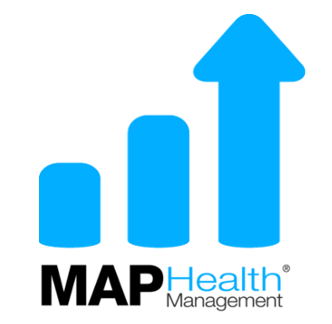Intent Solutions Interviews Jacob Levenson
April 18, 2017
Published on Intent Solutions' website, April 18, 2017. Read the Interview Here
Last week we had a great opportunity to interview Jacob Levenson, CEO of Map Health Management, of Austin, Texas. We focused our conversation on the importance of technology and data in population health---understanding where we are coming from and where we’re are going with this sea of data! In Levenson’s terms, “If all this technology… if all this data… does not lead to healthier people, than it’s worthless.”
How does technology play a role in population health today?
Technology is supposed to make life more efficient. The role of technology is to do a couple things; if it’s not driving an improvement in clinical outcomes or cost reduction (these are often highly correlated), then it probably has questionable value. Technology should be driving a more efficient ecosystem, it should be improving access to healthcare, it should help understand who’s at risk for what and when, and technology should be enabling solutions that improve one’s health care situation and treatment for those individuals.
Why is not already the norm for technology and data to be involved and included in population health?
EMRs, EHRs, that are very very very expensive to convert out of. Those conversions have been an obstacle to the newer generations of technologies coming onto the scene. Number 2, not everyone stands to win with new technologies, there are some people and organizations who kind of protect the old guard… we’ll call it the old guard… The old guard stands away from some of that innovation because they aren’t on the right side of history with some of this stuff. People are still trying to understand how to increase adoption rates, specifically with healthcare consumers - the people who are receiving the services. How to develop and deploy technologies that people will actually use, we’re still in the infancy of that and it’s not totally understood yet.
“The number one factor, whether it’s substance use disorder, or cancer... is early intervention... the holy grail for all of this is genomics”
How can we incorporate the old, outdated, expensive technologies of population health with the new data driven ones?
Some of these older technologies, like EMRs, are electronic, they are medical records, they are digitized, the problem is not whether they exist but people who own them are not really integrating a lot of them. They’re what we call data silos. That information is critical to really understand a specific patient, but it’s kind of trapped in the database of those kinds of organizations. I think that as we start to understand how that data can be utilized it will incentivize people to move that data out and it allows for data migrations to happen and things of that nature. I also think the market is moving to a place where it’s not going to be acceptable to keep data under the raps like that... because that data could be essential to what’s happening to someone and how to best treat them and holding that data hostage, if you will, starts to call in a lot of ethical issues.
Do you believe this data is going to lead to more personalized health and personal medication?
Yeah. Without question. Personalized medicine, that cat is already out of the bag, but the whole trajectory is towards a much more customized healthcare experience for the individual that is essential for outcomes improvement. People experience different health phenomenon in their own unique way, and they respond to different treatment methodologies and we have to utilize data and technology to really efficiently inform that process and so the whole long arc of this is for much more intense personalized medicine.
In the future is data going to be the basis of all decisions? Would that be a bad thing?
I don't know that it’s data only or no data or at all. We never want to discount what’s called clinical intuition, which is a doctor having their own gut feel or experience insight brought at all . we should be enhancing that not replacing that. It should be a combination of empirical data, which is obviously very objective, and combining that with clinical insight. I think there’s a happy marriage there I don’t think that one is necessarily preventing the other from being apart of the process.
What do you believe the outcome will be of all this? Why is data going to be so valuable? Great question.. Here’s what the outcome has to be, otherwise none of the technology, nothing will ever happen: people have to be healthier. If all this technology… if all this data… does not lead to healthier people, happier people, more productive people… than it’s worthless. Those kinds of people are utilizing healthcare resources less which is driving much more prevention and preventable medicine. Here’s an important thing to understand - the number one factor, whether it’s substance use disorder (addiction), or cancer, or heart disease is early intervention. We have to understand how to intervene early and understand where this is going and what we’re all working on - the holy grail for all of this is genomics. Understanding at birth who is predisposed to what and what you can do about it. I mean, if you know someone is going to have a heart attack at 58 and they’re an infant sitting in your arms what can you do about that? That’s pretty remarkable stuff. It’s a little bit of a dream today, but it’s not going to be for much longer, there’s a lot of headway made there.








